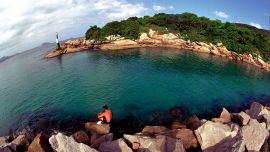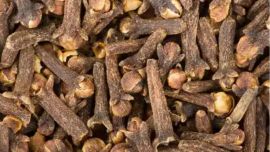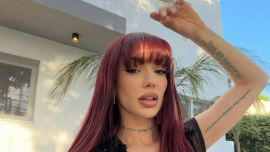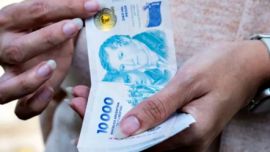“Let’s go Macri!” yells Alexander Alcalante, one of many Venezuelans who joined Argentines at the pro-government '#SíSePiuede' rally at the Obelisk last weekend, fighting for the president's re-election in Buenos Aires. He fears a victory for the centre-left Peronist hopeful Alberto Fernández this weekend would bring upon another Venezuela-like crisis for his newly adopted homeland.
Hundreds of Venezuelans yelled the “Si, se puede!” cry last Saturday. From the stage, the president waved to Venezuelans who he said held “equal values.”
“We came to support Macri. We hope Argentines understand that their vote is their best weapon against socialism,” said Alcalante, standing underneath a huge Venezuelan flag.
Although Argentina is not the Latin American country with the highest number of Venezuelan migrants, arrivals here have increased exponentially. From just 2,278 in 2013, there are now almost 170,000 Venezuelans living in the country
The migrants are fleeing form the worst political and economic crisis in Venezuela’s recent history, with incomparable inflation rates. Food and medicine shortages, and electricity and water cuts have spearheaded violent protests amid allegations of torture and extrajudicial killings.
Fears of 'Argenzuela'
Fernández scored a clear victory in the Argentina's August 11 PASO primaries, putting Venezuelans living in the country on high alert.
“I tell Argentines I come from the future, that I know what socialism is, I know the lie,” lamented Leticia Rodríguez, a veteran security analyst.
In Buenos Aires, however, she Rodríguez arepas and empanadas to make a living.
Fernández does not define himself as a socialist, but he stirred conversation here when he assured the public there was no dictatorship, rather an “authoritarian regime.” His running-mate, former president Cristina Fernández de Kirchner (2007-2015), was an ally and friend of the former-president Hugo Chávez, who before his death was a mentor to Venezuela's current laeder Nicolás Maduro.
Leticia talks about her fear while she fries empanadas in boiling oil.
“The insecurity, the hunger, will come again… and we’ll have to leave again,” she confesses.
Eduardo Rodríguez, a 26-year-old Venezuelan student, also fears for the future.
“In Venezuela they told us we couldn’t become Cuba. They talked about ‘Cubazuela’ and many laughed. At the end we did become Cuba. No country is excused [from it],” he affirmed.
But for expert Michael Shifter, the president of the Inter-American Dialogue, “there is no possibility that Fernández repeats the situation in Venezuela.”
Shifterargues that Fernández is “[a] moderate, pragmatic.” The difference between Venezuela and Argentina is that Argentina has independent institutions, a diversified economy, and a still-strong middle class.
Crisis after crisis
Jolymar Hernández, a 32-year-old businesswoman, is sure that she will continue running the Venezuelan restaurants she started in Buenos Aires, regardless of who wins the presidential elections.
“We are going to respect whatever the Argentine public decides. We wish, from the bottom of our hearts, that it is the best for Argentina,” says the owner of Chacaíto, a colourful restaurant that recreates the metro stations of Caracas.
However, Jolymar recognises that the economy here is facing a crisis that reminds her of Venezuela.
“All public services have increased in price, food prices and all line items have also been affected. We as business owners are also then forced to increase the price,” she explains.
In a recession since 2018, coupled with the devaluation of the peso, Argentina has one of the highest inflation rates in the world (reaching 37 percent in September) with poverty rates reaching 35.4 percent.
“At first, the remittances we sent to Venezuela were enough, but not anymore. Now they’re not ok there and we are very tight on funds here,” complained Leticia.
Latin American shift
A victory for Fernández would also form part a regional readjustment of power between the left and the right in the region.
With Macri, Argentina formally recognised opposition leader Juan Guaidó as the interim and self-declared president of Venezuela, alongside 50 other countries, and it has been a key part of the Lima Group.
To Shifter, if Fernández wins the presidency he’ll “try to take a more neutral stance, and the united Latin American front against Maduro will weaken.”
Unity will perhaps weaken even more than it did after the arrival of leftist Andrés Manuel López Obrador to the Mexican presidency in December of 2018.
Far away from politics, Leticia returns to shredding meat and preparing arepas .
She retains hope that Macri may emerge with an electoral victory, but remains concerned.
“If the options are between a Venezuelan and an Argentinian socialism, I’ll go to a socialist Venezuela because that’s my country, all my things are there,” she reflects.
–AFP
by Yemeli Ortega, AFP


























Comments